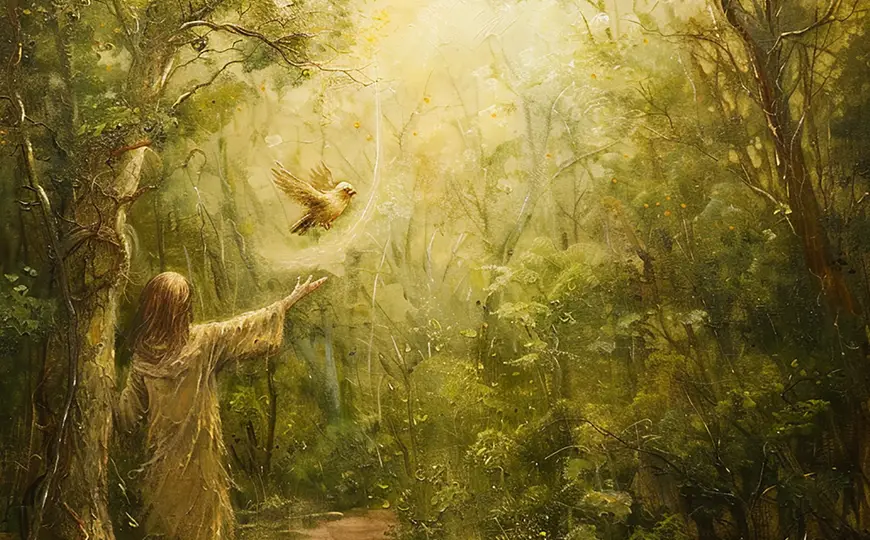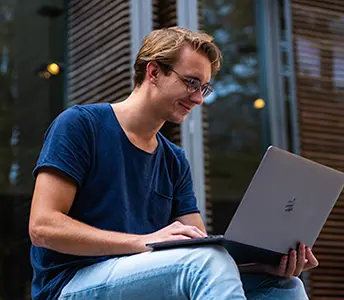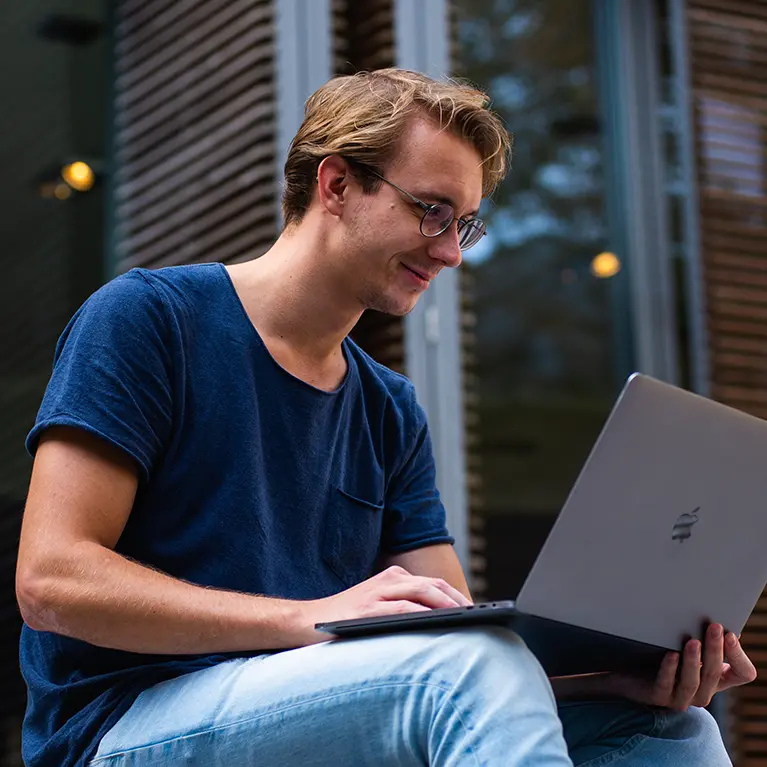Leadership•February 23, 2024
Navigating Destiny, Culture, and Transformation: Insights from Peter Senge and Aftab Omer
In an era marked by accelerating change and increasing complexity, the need for a deeper understanding of our human nature and collective potential has never been more apparent.
During a compelling podcast, thought leader Peter Senge, in conversation with Aftab Omer and Melissa Schwartz, delved into profound topics, providing listeners insights regarding destiny, culture, inner freedom, and the human journey.
Read on to explore a summary of the ideas examined within their conversation.
About the speakers:
- Peter Senge, Ph.D., a noted systems scientist and senior lecturer at MIT Sloan School of Management, authored the influential book "The Fifth Discipline: The Art and Practice of the Learning Organization." He also founded the Society for Organizational Learning and collaborates with the New England Complex Systems Institute.
- Aftab Omer, Ph.D., is the president of Meridian University, which offers degree and professional programs globally, emphasizing the power of transformative learning. He is a sociologist, psychologist, developmentalist, and futurist. Raised in Pakistan, India, Hawaii, and Turkey, he was educated at the universities of M.I.T., Harvard, and Brandeis. His publications have addressed the topics of transformative learning, dialogic capability, developmental power, cultural leadership, civil society, generative entrepreneurship, and the power of imagination.
- Melissa Schwartz, Ph.D., is the Chief Academic Officer at Meridian University, where she guides integrally-oriented programs in Education, Business, and Psychology. The Director of Meridian’s Center for Transformative Learning, Melissa, is dually licensed as both a psychologist and a Marriage and Family Therapist (MFT). Melissa’s research interests are in the areas of adult development, the psychology of women, integral transformative assessment, and the role of culture in transformative learning.

In life's grand theater, destiny sets the stage, and free will performs.
The podcast starts with Melissa Schwartz, a contributing faculty member, who shares a passage from the philosopher Martin Buber, casting light on the profound interplay between destiny and free will. As she read, the pronouns were adapted to honor the spirit of inclusiveness, resonating with our modern times.
"The free person is one who wills without arbitrary self-will. They believe in destiny and believe that it stands in need of them, yet does not know where it's to be found. But they know that they must go out with their whole being. The matter will not turn out according to their decision, but what is to come will only come when they decide on what they are able to will. They must sacrifice their puny and free will, which is controlled by things and instinct to their grand will which quits defined for destined being. Then they intervene, no more they intervene, no more, but at the same time, they do not let things merely happen. They listen to what is emerging from themselves to the course of being in the world, not in order to be supported by it, but in order to bring it to reality, as it desires."
Inviting participants, as well as Peter Senge, to share their reactions to the passage, Melissa Schwartz, created a moment of collective reflection. This interlude within the podcast allowed listeners to contemplate the space where personal will meets a larger destiny and how one might navigate that junction.
Are We Trapped by Fate?
The conversation continued, examining the juxtaposition of fate and destiny, illustrating how free will is inextricably linked to the concept of destiny. Fate implies a powerless acceptance of the future, while destiny involves intentional choice and action.
This perspective challenges the pervasive sense of fatalism that has come to define modern attitudes, where individuals often feel powerless in the face of technological progress and global issues like climate change. Senge suggested that by reclaiming our sense of choice, we position ourselves to create a future aligned with our deepest values and aspirations.
Expanding on the philosophical and ontological underpinnings of purpose, or 'telos,' Senge critiqued the Western scientific dismissal of teleological explanations for their perceived fatalistic tones.
He advocated for a nuanced understanding of destiny, suggesting that true destiny emerges within a context of choice, particularly when juxtaposed against the cyclical trap of fate. Senge emphasized the transformative potential of embracing destiny as a choice-driven pursuit.
By understanding that free will can forge a path to an aspirational future, individuals are not passive observers but active creators of their world. This shift from a perception of fate to one of participatory destiny may lay the groundwork for renewed hope and vigor in tackling global challenges.
Gauging Society’s State Through Its Youth
Aftab Omer asks Senge to reflect on his practice and thoughts about the current state of the world.
Senge emphasizes the critical role of children's perspectives and well-being as indicators of societal health. He points out the growing pessimism about the future among children and adolescents, suggesting this is reflective of broader societal concerns.
Senge highlights the efforts in British Columbia to track the well-being of children through comprehensive social-emotional learning programs and various measures. Despite these efforts, he notes a decline in children's well-being, suggesting this trend might be indicative of a global issue.
Cultural Exchange and Transformation: The Significance of Developmental Spaces
Transitioning to the role of practitioners in influencing society, Senge underscored the significance of organizational culture. He shared a foundational principle taught by his mentor Edgar Schein: the most salient elements of culture manifest in the minutiae of daily interactions and unwritten norms.
If we wish to transform organizational culture, we must pay attention to how we convene, host, interact, and close our shared spaces, for culture is fluid and malleable with enough awareness and reflection.
In this exchange, Aftab Omer shared the poem "Lost" by David Wagoner, which resonates deeply with the cultural transformational journey:
"Stand still. The trees ahead and bushes beside you Are not lost. Wherever you are is called Here, And you must treat it as a powerful stranger, Must ask permission to know it and be known. The forest breathes. Listen. It answers, I have made this place around you. If you leave it, you may come back again, saying ere. No two trees are the same to Raven. No two branches are the same to Wren. If what a tree or bush does is lost on you, You are surely lost. Stand still. The forest knows Where you are. You must let it find you."
Collective and System Will: The Legacy of Nelson Mandela
Peter Senge, prompted by a question from Aftab Omer, delved into the profound influence of transformative leaders like Nelson Mandela, focusing on the concept of 'system will' or 'collective karma.'
He shed light on Mandela's remarkable evolution from an activist shaped by the injustices of apartheid to a symbol of reconciliation and hope, anchoring the end of an era defined by segregation and the birth of a new, inclusive South Africa.
Mandela's incarceration for 30 years could have hardened his view of the world, yet instead, it became a crucible for change. Senge highlighted that what transpired within Mandela during his imprisonment was not merely a shift in mindset but the emergence of a grand vision for his country—a realization of destiny.
Mandela's subsequent actions didn't just surface from personal grievances but from a deep sense of responsibility to rectify historical wounds and guide the nation towards a path of healing and unity.
Describing the climate of South Africa at the time—a nation on the brink of seismic change—Senge recounted the audacious hope that Mandela and his peers carried. The spirit of this collective hope culminated in Mandela's decision to hold his inauguration alongside his former prison guards, an act symbolizing the forgiveness and unity he championed. Taking a step further, Mandela led the nation in singing the old national anthem of apartheid, symbolizing the acceptance of the past and the move towards a new future.
Human Nature and the Quest for Understanding Life’s Energies
Senge also talked about what it means to be human, which he characterizes as a journey spoiled by our modern culture's 'insanity.' He criticized the tendency to chase after the inessential while ignoring what we truly value. For Senge, encounters with native cultures and their ceremonial practices represent a window into 'sanity’—a realization of the symbiotic relationship between life and its environment.
Senge introduced listeners to Eastern concepts of energy: Ching (vitality), Chi (life force), and Shin (spiritual energy), which provide a theoretical framework for understanding humanity from a different vantage point. He encouraged us to approach these concepts with humility and an open heart, emphasizing that this process requires acknowledging how far we've strayed from a balanced relationship with ourselves and the natural world.
Humanity’s Shared Journey
The conversation ended with Aftab Omer introducing the concept of 'Lehaz,' which he defined as "the commitment to sustain the significance of the other's being," encapsulating the spirit of fostering connections and recognizing others as legitimate others. In this regard, another poem was evocatively mentioned by Omer, expressing the profound connection and recognition of humanity's shared journey:
"Not I – not anyone else, can travel that road for you, You must travel it for yourself. It is not far – it is within reach, Perhaps you have been on it since you were born and did not know, Perhaps it is everywhere – on water and on land." — Walt Whitman, "Leaves of Grass"
In Summary
Peter Senge and Aftab Omer's conversation serves as a reminder of our journey toward understanding destiny, transforming culture, and realizing our human essence.
It challenges us to step into our active role in shaping the future, embrace our collective karma with awareness, and embark on our paths with humility and love. We are summoned to stand still, not passively, but ready to engage with life's profound opportunities and challenges.
Meridian University’s programs provide a transformative path to education that values the principles mentioned in this conversation. For those interested in walking this path and exploring these topics even further, consider checking out our Degree Program Overview or speak directly with an Admission Advisor.
Learn More
Interested in learning more about the programs at Meridian?
Contact An Advisor »Attend an Info Session »


